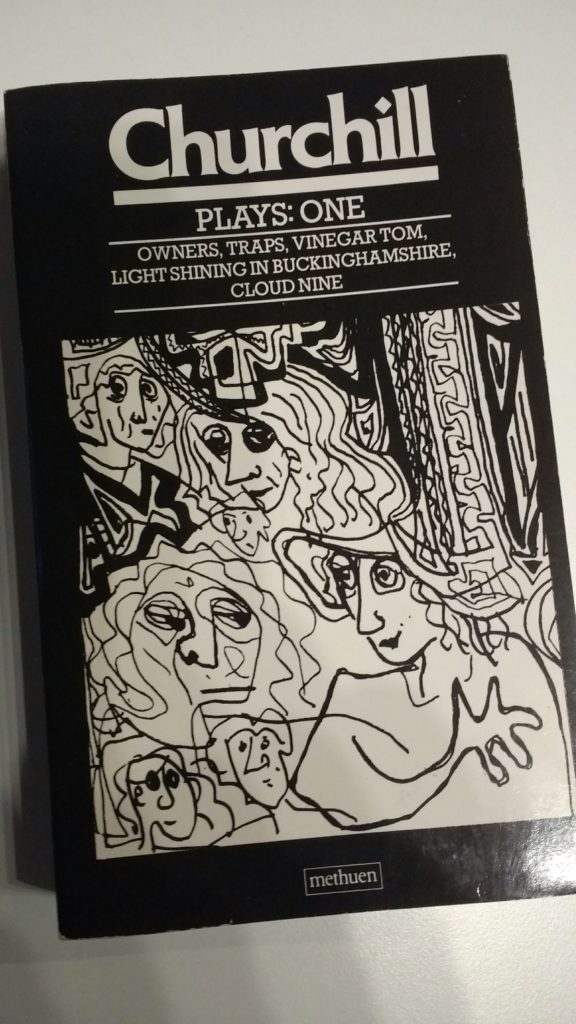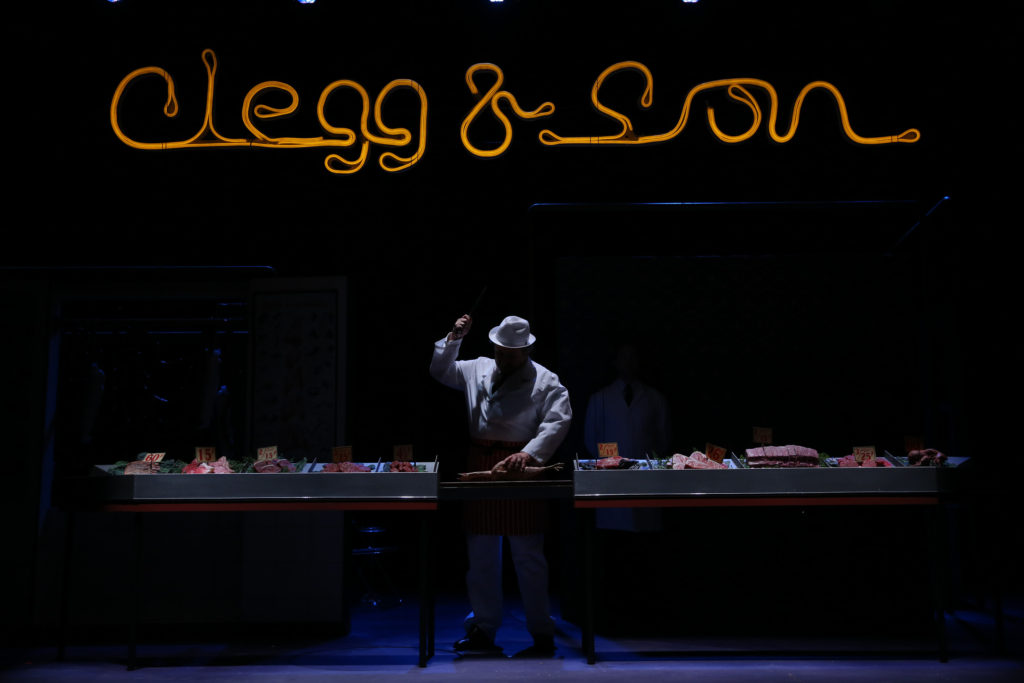Caryl Churchill is the presiding playwright of our era. At 78, every play she writes is an event – not because of their rarity, or a forelock-tugging spirit of sentimentality, but because each text explains our time to us, shows us the paths we are taking. She ended 2015 with Here We Go, her devastating shard about death and old age; she began 2016 with Escaped Alone, another play about age that somehow segued into dystopian surreality. ‘Terrible rage,’ the phrase that its homely monologist threw out again and again, proved as good a response as any to the tumult of subsequent months. I think of it often.
Churchill is prolific: I probably have texts of most of her plays, but there are some I haven’t yet read. I have, surprise, a lot of books. And I have, surprise, not read them all. As old year ticks into new, I thought I’d spend a couple of weeks reading an unfamiliar play each day. Twelve plays, 12 posts: welcome to 12 Plays of Xmas.
Churchill seems a good place to begin – and I’m starting with her own beginnings. Owners was her first professionally-staged play, written for the Royal Court Theatre Upstairs in 1972. Like much of Churchill’s work, it seems uncannily timely; set in ‘a developing bit of north London,’ it’s about gentrification, aspiration, determination and social change. In other words, it’s a play about house prices.
Marion is the forward-march protagonist. Married to a failing butcher, captivated by a zen-like ex, she sets her sights on money, property, a baby – none of it necessarily hers, but that shouldn’t be a problem. The tone is ruthlessly realist, blackly farcical: a dying old age pensioner, an extravagantly unsuccessful suicide. Churchill reports the spread of the fashionable fitted kitchen (‘’all white and steel and everything in it the same height. No handles. Knives on a magnet just held to the wall’), jabs the text with jokes and terror.
What would you have predicted the author of Owners might become? Mike Leigh with sharper jokes, maybe. There’s an arch but unflinching tone to the dialogue (Churchill says she’d been reading Orton at the time) that moved into the semi-period chatter of Cloud Nine and Top Girls, and more recently recurs in some of the scenelets of Love and Information and the familiar banter of Escaped Alone. Churchill’s social and political territory has remained too – rug-pulling plays that explore current anxieties or uncannily intuit anxieties just around the corner: politics from geopolitical, identity, environmental. When Escaped Alone is revived next month, just one year after its premiere, it will sound less like apocalyptic fantasy and more like straight reportage.
Churchill’s complicated feminism remains too – a weave of anger, analysis and complicity. Marion is, like Marlene in Top Girls, an early driver of the Thatcherite revolution – a stormtrooper of aspiration who leaves weaker sisters to die in the snow with nary a backward glance. The structure is less unexpected, the voracious reinvention less keen. But it’s more interesting to think of how Churchill has kept changing, kept challenging herself, her colleagues and audiences. After Owners, she moved smartly through the 1970s onto witch trials, the English civil wars and the sexual revolution. She is still moving on.
Sample stage direction ‘Worsley comes in. His wrists, neck and arm are still bandaged. His left leg is in plaster.’
Sample quote Marion: ‘I work like a dog. Most women are fleas, but I’m the dog.’
Owners is included in Caryl Churchill – Plays: 1
Follow David on Twitter: @mrdavidjays



Leave a Reply